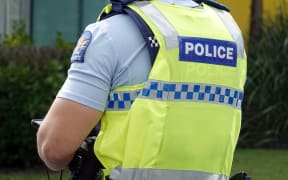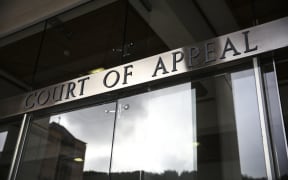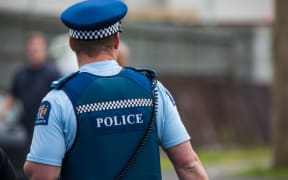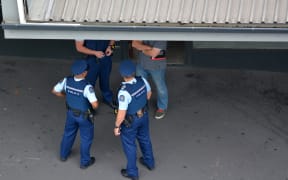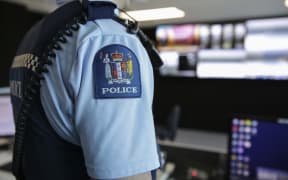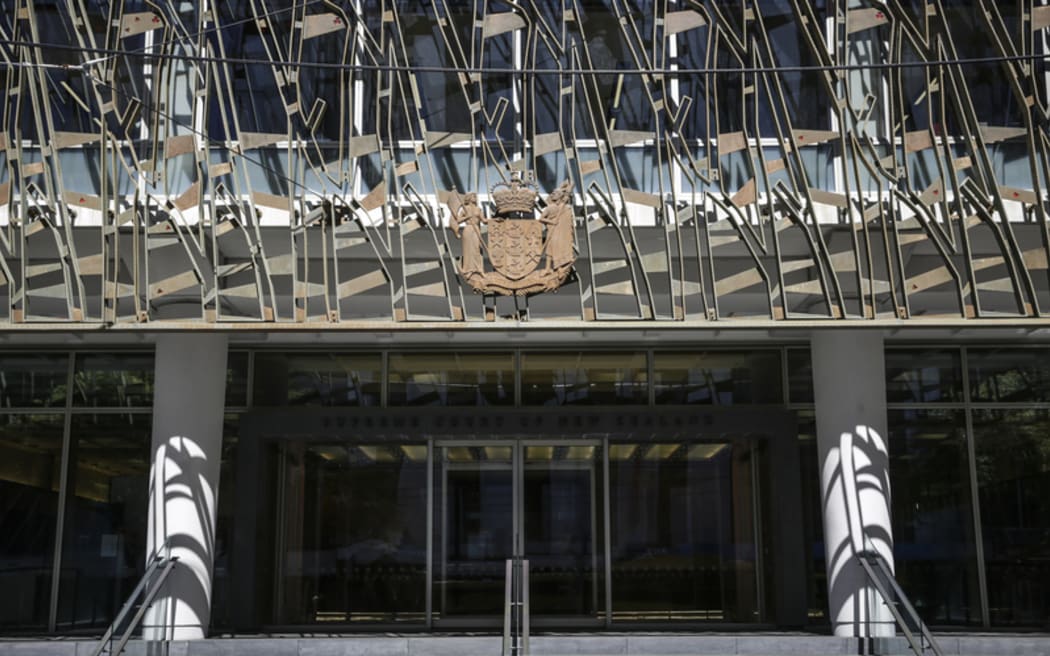
Supreme Court at Wellington. Photo: RNZ / Rebekah Parsons-King
The country's highest court is to weigh in on whether police officers are allowed to take random pictures of people on the street.
The Supreme Court will hear the matter on Wednesday and Thursday.
There are fears by the Police Association that a decision could have a big impact on how police do crucial intelligence gathering.
Case could settle police photography question
In 2021, Mahia Tameifuna was convicted of aggravated robbery despite crucial evidence - photos taken of him by a police officerduring a routine traffic stop - being gathered illegally.
The Court of Appeal found that despite this breach of rights, the picture could still be used in court.
Tameifuna has asked the Supreme Court to overturn that decision.
Read the submissions for the case here.
University of Auckland associate law professor Scott Optican said the question was whether Tameifuna, like any other person, has the right to expect that police will not just take his photograph "on the possibility they want to keep it on their database (because) maybe it might be helpful in some future investigation".
The case could settle whether police are allowed to photograph members of the public on the street who are not being targeted for a specific crime.
New Zealand Police Association president Chris Cahill said it could have a significant impact on how police fight crime.

New Zealand Police Association president Chris Cahill. Photo: ©VNP / Phil Smith
With the proliferation of phone cameras, Cahill said people simply do not expect privacy in a public place.
"This is really a 1980s decision that doesn't reflect people's expectation of privacy (in) ... 2024."
Optican said it was hard to say how widespread the photography practice was, but a joint police watchdog and Privacy Commission investigation - triggered by RNZ reporting - found it was rife.
He said police can ask Parliament to pass legislation if they feel any court decision is overly restrictive.
Cahill was also worried about how any Supreme Court decision could impact the police use of CCTV and body cameras.
But Optican said based on the way the case has been presented, it is just about this particular investigation technique of taking a photo on the street that "falls through the cracks" of current law.
University of Otago associate law professor Dr Anna High said it was one thing for members of the public to take photos of each other, but quite different when police officers do it.
"The [Court of Appeal said] we cannot accept that police have a free ranging right to take and retain close up photographs of members of the public acting lawfully in public places perhaps because the look suspicious or different."
High said a Supreme Court decision could provide helpful clarity to police about what was allowed.
"They need to play within the rules as they go about doing real mahi to keep us safe, to keep society safe and to try to enforce the law."
The Supreme Court will look at whether the Court of Appeal was right to find the photo of Tameifuna "improperly obtained", and whether that court was correct to allow it as evidence anyway.
Optican said the case gets to the fundamentals of what is an effective and credible justice system.
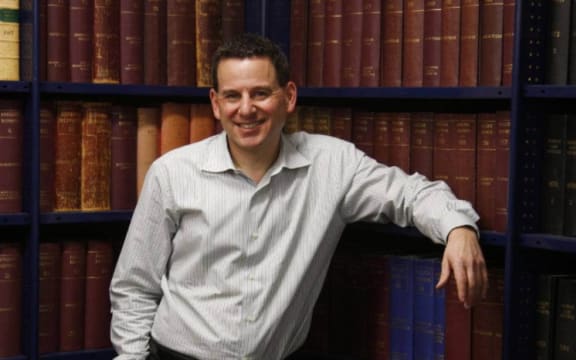
University of Auckland associate law professor Scott Optican. Photo: University of Auckland
"Is it more important that when you've got good evidence of guilt you use it convict the ostensibly guilty?
"Or is it more important that you exclude the evidence in order to deter police misconduct, vindicate rights, and look out for the long-term health of the criminal justice system which doesn't want to be involved in the perpetual use of tainted evidence."
The Supreme Court may decide to quash Tameifuna's conviction and there may need to be a retrial.
Police said in a statement that photography was an important part of intelligence gathering and the work of police to prevent and resolve crime, and to keep communities safe.
They said they would consider what police practices, if any, might need to change after the Supreme Court releases its decision.
The Office of the Privacy Commissioner is going to provide submissions to the court, saying it is only the second time it has weighed in on matters before the Supreme Court in this way.
The hearing in Wellington is set down for 10am Wednesday and Thursday.
The justices will reserve their decision.

